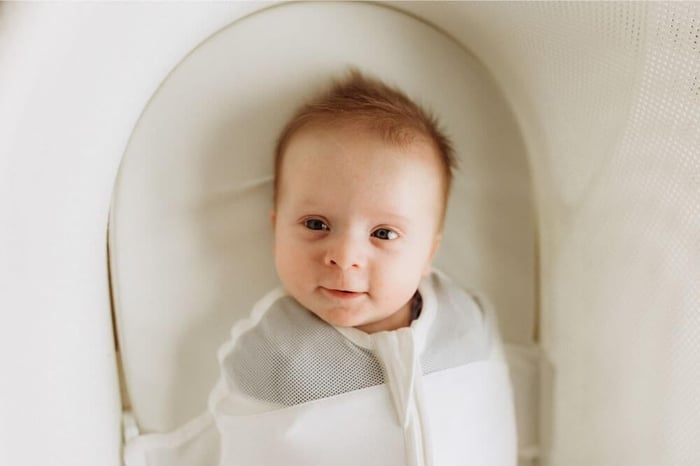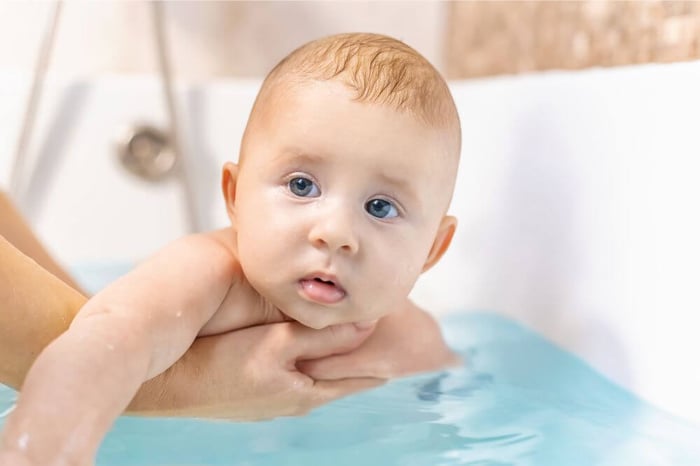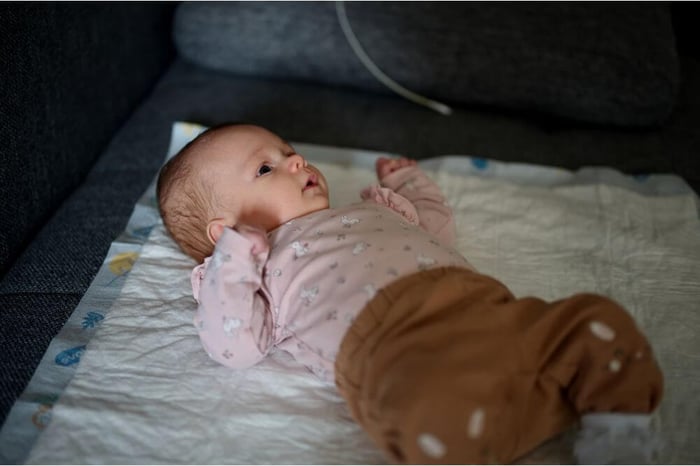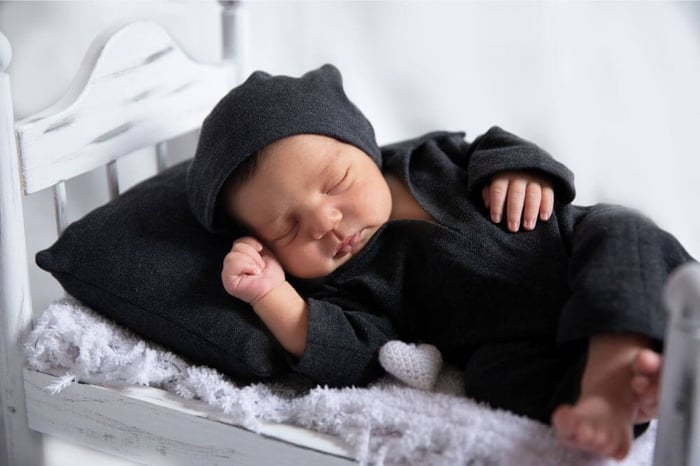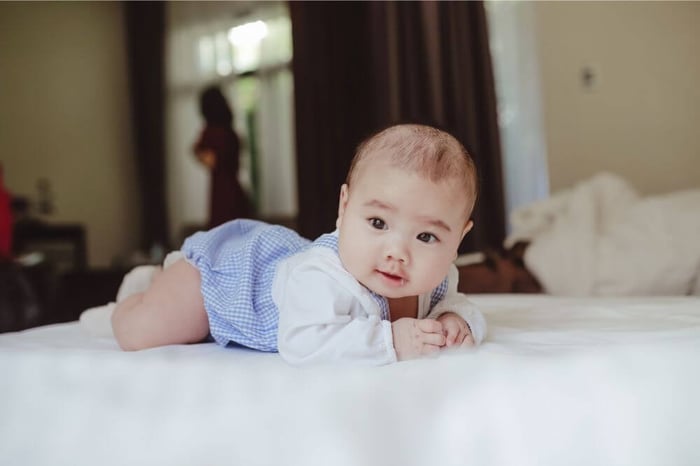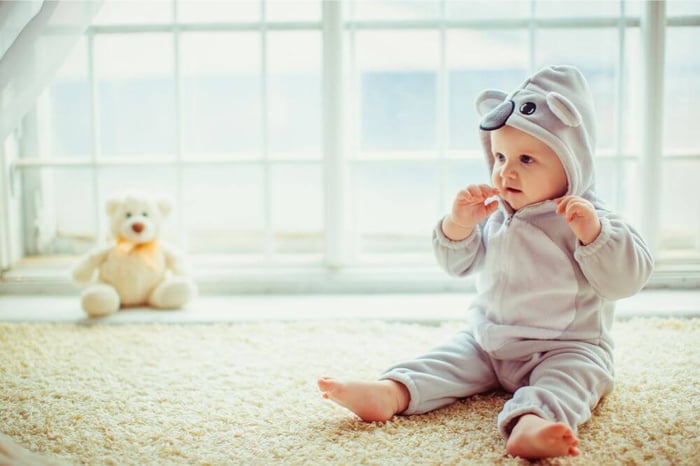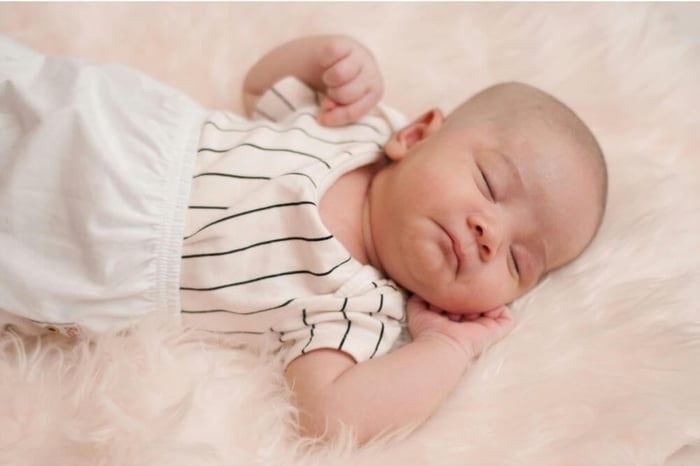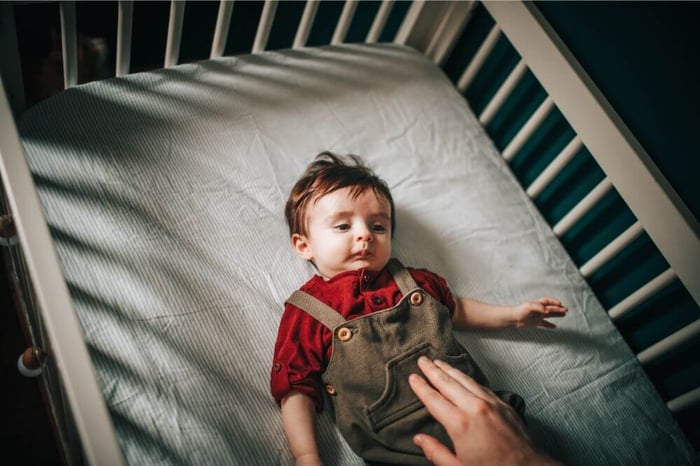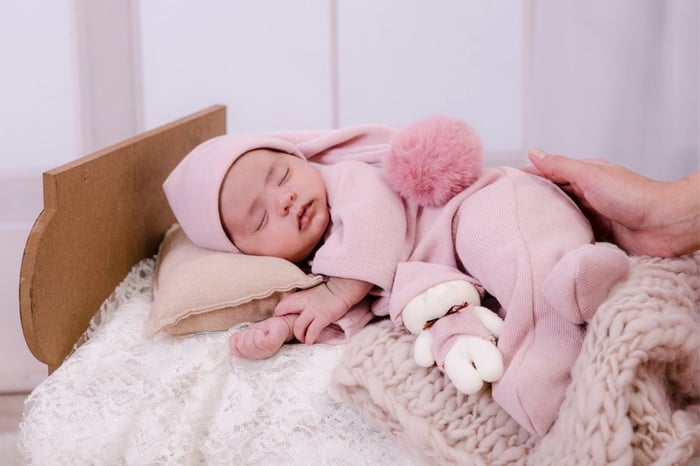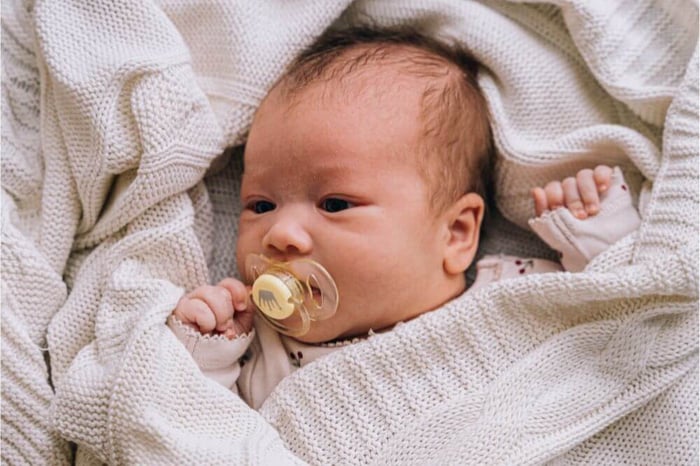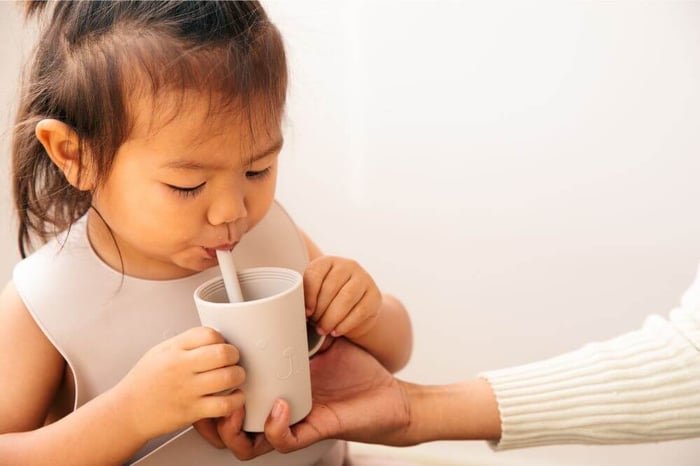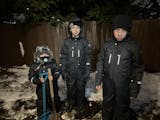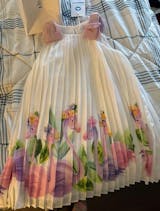When Is a Baby No Longer a Newborn
Watching your tiny newborn grow is a whirlwind—one minute, they’re sleeping all day, and the next, they’re bright-eyed and ready to take on the world (or at least, the living room!). As a parent, you might wonder when this precious "newborn" phase end.
How do you know when your little one is moving into the next stage of babyhood?
This question is more than just curiosity. Knowing when your baby shifts from “newborn” to “infant” can help you understand and even predict some of their needs, from changes in sleep to new feeding patterns. Plus, each developmental milestone gives you a glimpse into the exciting growth ahead!
In this blog, we’ll dive into what defines the newborn phase and give answer to when is a baby no longer a newborn. Let’s get into it!
What Defines the Newborn Stage
The excellent newborn stage marks the start of your baby's life outside the womb. It's a period of tremendous development, adaptation, and exploration. You can give your child the finest care and support possible if you, as a parent, are aware of this time's unique traits and requirements.
The first eight weeks of your baby's existence are usually considered the newborn stage. Your kid is going through many changes as they get used to their new surroundings. They must learn to control their body's processes, process sensory data, and develop attachments as they transition from the womb's safe and regulated environment to the outside world.
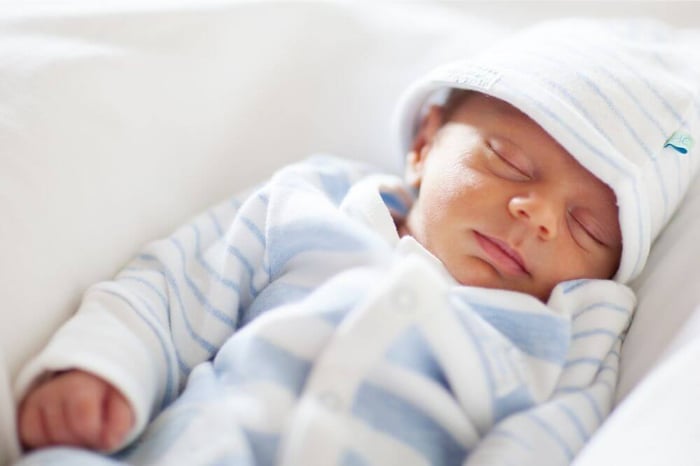
Newborns are physically delicate and entirely reliant on their caregivers. They have little control over their muscles, and their actions are frequently reactive. Nature compels them to seek out food, warmth, and comfort, and they use indicators like hunger, discomfort, or exhaustion to express their requirements.
In terms of cognition, babies take in and process new inputs very quickly.
They react to human touch, voices, and faces.
They may exhibit preferences for familiar voices and scents.
They seek comfort and protection in the company of their parents
Frequent awakenings and erratic sleep cycles are hallmarks of neonatal sleep patterns. Newborns usually sleep for two to four hours at a time, and their sleep-wake cycles might not coincide with the day-night cycle.
Remember that babies have a wide range of sleep patterns; developing a schedule could take some time.
During the newborn stage, feeding is the main priority since your baby requires the proper nourishment to sustain their quick growth. The majority of babies feed when they are hungry, expressing this by smacking their lips, sucking on their fists, or rooting. In addition to providing vital nutrition, breastfeeding or formula feeding strengthens the link between a parent and child.
Parents also have a high learning curve during the newborn stage. You might have to learn to:
Read your baby's cues and requirements
Provide caregiving for all the day long
Deal with sleep loss
Why Knowing This Transition Matters?
Understanding when is a baby no longer a newborn is more than just a milestone; it can shape how you care for them in this new phase. This shift signals fundamental developmental changes directly impacting their routine, needs, and interactions with you.
Your baby’s sleep pattern will likely evolve around this time. As they leave the newborn stage, they may start sleeping in longer chunks, allowing you to get into a more predictable rhythm. This transition is your chance to establish a bedtime routine that works for both of you, like a simple series of calming activities before sleep. This helps your baby and sets up your own routine, making those nighttime wake-ups a little less chaotic.
The transition also affects feeding.
Newborns tend to feed frequently, sometimes every 1-3 hours. Their stomachs can hold more as they grow, meaning they may go longer between feedings. This change lets you adjust feeding schedules slightly, giving you more flexibility in planning your day and adapting to your growing appetite.
Then there’s the matter of social and emotional growth. When babies move beyond the newborn stage, they start recognizing familiar faces, responding with smiles, and even beginning to mimic sounds. Knowing they’re ready for this level of interaction encourages you to engage with them more by singing, talking, or playing simple games. This isn’t just cute; it’s essential for their brain development and helps build a strong parent-baby bond.
Check out the essential guide for your newborn.
Is a Three-month-old a Newborn?
Although a three-month-old infant is still technically a newborn, you may notice that they are considerably more active and responsive at this age. Later on, we'll review some developmental indicators that your child has transitioned from a newborn to the next exciting stage.
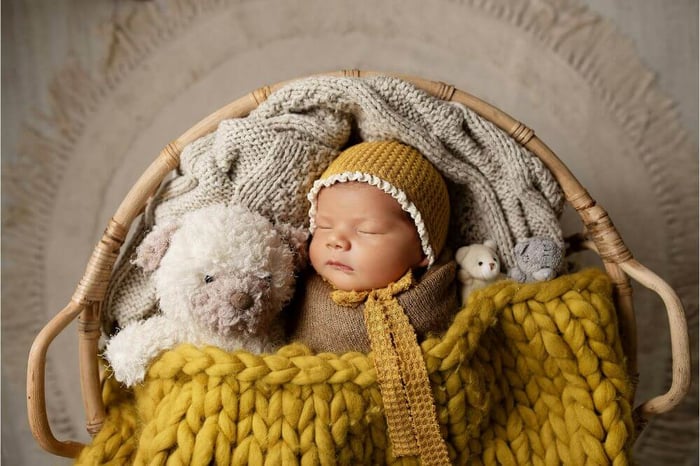
After the infant stage, what comes next?
Now that you get the answer of when is a baby no longer a newborn, you might ask when come next? The three months to roughly one year old stage is known as the "infancy stage," and it is filled with many incredible achievements.
As you transition from having a newborn to an older infant, you will see and experience specific changes in addition to age. Managing sleepless nights and parenting concerns while caring for a newborn might lead to some tiredness. These difficulties might begin to appear somewhat less significant after the infant stage.
Signs Your Baby Is Moving Beyond the Newborn Phase
As your baby moves out of the newborn phase, they give you clues that they’re growing fast! Here are some exciting signs that might give the answer to “when is a baby no longer a newborn.”
First, you’ll probably notice they’re more awake and alert. Those dreamy, half-closed eyes are now wide open, taking in the world with a curious sparkle. They might be spending more time looking around, and you’ll even catch them making eye contact with you—and maybe even holding it a little longer.
They also start rolling up, which is an exciting milestone.
Another fun sign is their growing strength. Newborns have floppy heads, but by 2 to 3 months, your baby may start holding up their head for short periods. It’s like a mini workout every time they push up during tummy time, showing off those tiny muscles!
You’ll also notice they’re a lot more vocal. Forget the quiet newborn squeaks. Now, they might be experimenting with sounds, cooing, and even testing out their first baby giggles. This is your baby starting to figure out how to communicate beyond crying, and it’s heart-melting.
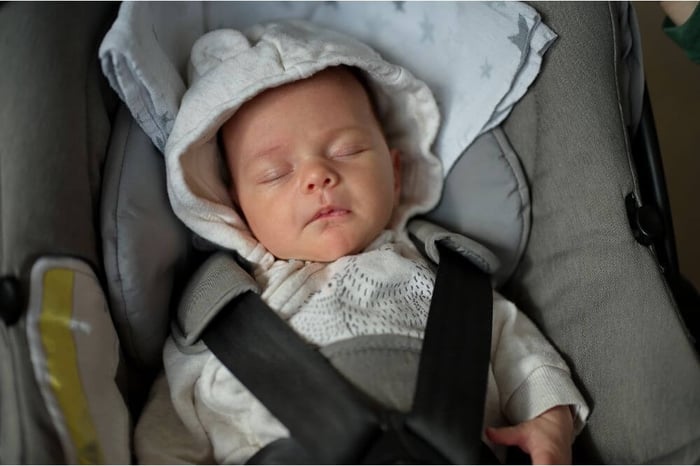
Socially, they’re waking up too. Around this time, many babies start responding to faces and might even flash you that first sweet smile. It’s their way of connecting, and it’s an unforgettable milestone.
Lastly, you might see sleep shifts. Instead of random naps all day, they follow a slightly more predictable sleep routine (at least sometimes!).
And their clothes might not fit! Read the complete guide on how long babies fit in newborn clothes.
Adjusting to the Next Stage (Infant Phase)
As your baby steps into the infant phase, things change quickly! Suddenly, that tiny newborn you once cradled is a curious, wriggling little explorer. This new stage means some adjustments, but don’t worry; they’re all part of the fun.
First, your baby’s schedule might feel a bit more predictable. Their sleep might (finally!) start to settle into a rhythm, so you can get ready for some longer stretches of rest. Use this chance to create a simple bedtime routine; it doesn’t have to be fancy—just something soothing and familiar that helps them wind down.
Feeding times might shift, too. You may notice they can go a little longer between feedings as they grow. Follow their cues and be flexible—it’s all about finding what keeps your baby happy and full.
This stage is also perfect for introducing new sensory experiences. Your baby’s curiosity is in full swing, so go ahead and bring out those colorful toys or play gentle music. It’s all about exploring and helping them discover the world around them.
Wrap Up
Here, the discussion about when is a baby no longer a newborn ends. Although there is not a strict timeline to mark the different stages of life, the first two months are the newborn stage. This time is crucial as all you have to do is take care of your baby 24/7.
You'll feel like a whirlwind, from feeding them occasionally to ensuring they sleep comfortably. To ensure your newborn’s sound sleep, head to Jennikidz to get a complete infant kit.
FAQs
How long is the newborn stage?
According to the World Health Organization (WHO), the first 28 days of a baby's life, or the first month following birth, are considered the newborn phase. The stage is also eight weeks (two months) after delivery.
When does a baby stop being a newborn?
Up until roughly two months, your child will be considered a newborn. There are additional telltale signals that you are no longer dealing with a newborn, even if age is a good indicator of your baby's developmental stage.
Is a 3-month-old a newborn?
No. According to WHO, the first 8 weeks after birth are considered newborn, and after that, the infant stage starts.

